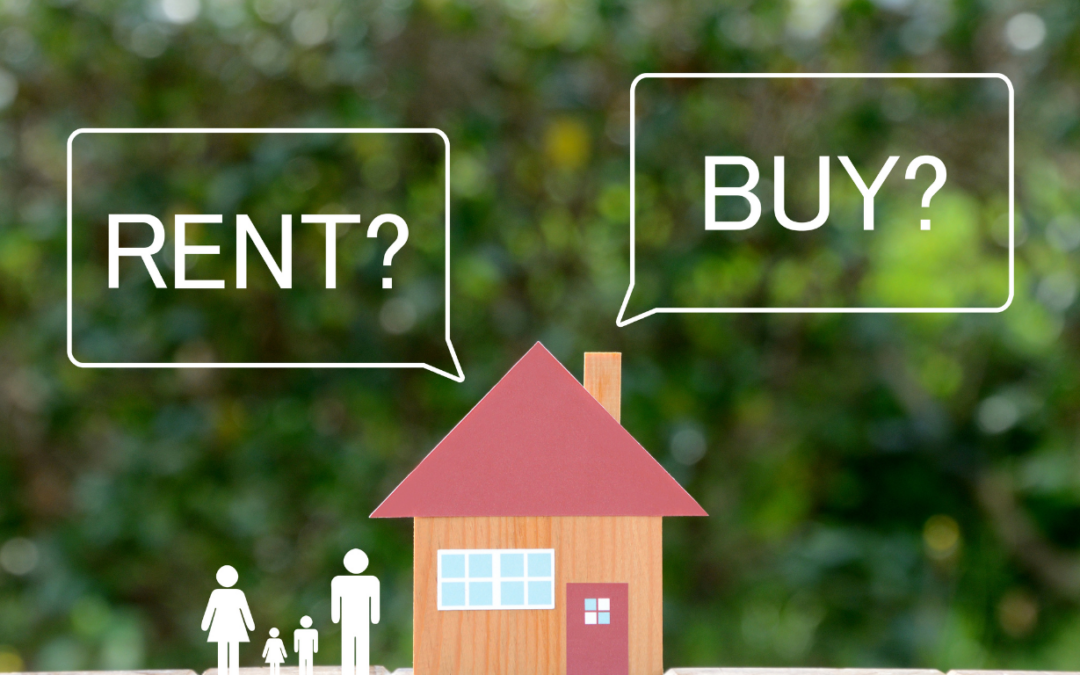
The choice between buying and renting a home can be difficult to make, but it’s one that bears important implications for your lifestyle, your goals, and your finances today and in the future.
Buying a home doesn’t just give you a sizeable investment – it can also represent financial independence and a significant step toward achieving the American Dream. However, doing so requires a large upfront financial commitment and entails a number of other responsibilities. The truth is that homeownership may not make financial or practical sense for everyone and, for some, renting may be the wiser choice because of the flexibility it can afford.
To help you decide between buying and renting a home, this guide weighs the potential merits of each option.
The Case for Buying a Home
The financial benefits of homeownership are well-documented, but it’s worth pointing out some of the non-financial benefits, too. Here’s the case for purchasing a home as opposed to renting one.
The Equity Play. Whether you’re paying cash or taking out a mortgage, buying a home means acquiring a significant financial asset that has the potential to appreciate in value over time. For this reason, real estate can be an effective equity investment, helping homeowners grow their net worth over the long term.
In addition to being a long-term investment, the equity in your home can serve as a safety net should you ever need access to cash. There are a number of ways to tap into your home equity, including a home equity loan or home equity line of credit (HELOC). In many cases, borrowing against the value of your home may entail a more favorable interest rate than a personal loan.
Tax Deductibility. Homeownership can confer some unique tax benefits, such as allowing you to deduct mortgage interest payments and property taxes from your income tax return. These deductions can help lessen the impact of these monthly and yearly payments while managing your overall tax liability.
Also, if you opt to sell your home after living in it for at least two years, you may be eligible for a capital gains tax exemption of up to $250,000 or $500,000 if you’re married and file taxes jointly. This exemption can help boost the profitability of your investment or free up capital to purchase a new home.
Potential for Rental Income. If you own multiple properties or your home has extra space, you may be able to generate additional income by renting out a room or a separate living unit. By using your home as an income stream, you can offset the costs associated with homeownership (mortgage payments, property taxes, upkeep) and potentially even turn a profit.
Stability and Control. Owning the home you live in may provide a sense of stability and security that renting simply cannot match. As a homeowner, you have full autonomy over your property and can make changes or improvements as you see fit. Your housing costs are locked in and you don’t have to worry about your rent increasing or being forced to move due to factors beyond your control.
For your family, homeownership means they can put down roots, build relationships with neighbors, and establish a routine. Your children can grow up in a stable environment where they get to enjoy continuity at school and in their friendships.
By comparison, renters may have limited control over their living spaces. Landlords may inhibit you from making changes to the property, such as painting walls or upgrading appliances. You could also face eviction if your landlord decides to sell or repurpose the property.
The Case for Renting a Home
Homeownership isn’t for everyone – particularly if you’re unwilling or unable to meet the initial costs. Here are some of the reasons why it may make more sense to rent than buy.
Lower Upfront Costs. The amount of money that’s required to purchase a home or make a down payment on one can present a challenge for prospective homebuyers. There can also be other upfront costs to consider, such as closing costs and inspection fees. Renting, on the other hand, typically requires less money upfront because you may only need to provide a security deposit and your first month’s rent.
Lower Upkeep Costs. Upkeep costs can be significantly lower for renters than for homeowners. The costs associated with homeownership can include property taxes, mortgage payments, and maintenance and repairs – not to mention whatever insurance you’re required to hold. These costs have the potential to add up over time, making homeownership more expensive and negatively impacting the profitability of your investment in the long run.
While monthly rent payments largely take the place of mortgage payments, renters usually aren’t responsible for performing property maintenance and repairs. You also don’t have to pay property taxes and it’s unlikely that you’ll have to own as much insurance. If something breaks or needs fixing, you can often have your landlord or property manager address the issue for you. This can save you time, money, and frustration.
Greater Flexibility. Renting can provide more lifestyle flexibility than owning a home. If you need to relocate for work or personal reasons, you can easily move out of your rental property without the hassle of having to sell a home, which can be a costly and time-consuming ordeal. This is especially useful for those who have a job that requires frequent moves or if you aren’t ready yet to settle down in one place.
Additionally, the unpredictability of the real estate market can make it difficult to sell your home quickly or for the price you want. And while real estate often appreciates over time, there’s always a risk that your property could lose value due to economic factors or changes in the local real estate market. This could result in a loss of equity or cause you to owe more on your mortgage than your home is worth.
Access to Amenities. Many rental properties, such as apartment complexes, come with amenities like swimming pools, gyms, and community centers. You may also get access to discounted goods and services. These amenities are usually included in your rent, so you can enjoy them without having to pay any additional costs.
Which Option Makes Sense for You?
The decision between buying and renting a home may be one of the most financially significant ones you’ll make in your lifetime. As with any major life choice, your decision should be guided by your individual circumstances.
The potential benefits of homeownership are well-documented, but that doesn’t necessarily mean it’s the right course of action for you. Be sure to consider the pros and cons of each option before making a decision. A financial advisor can help you choose the path that suits you and aligns with your goals.
If you’d like to learn more about homeownership or discuss your options with a member of our team, don’t hesitate to connect with us today.

